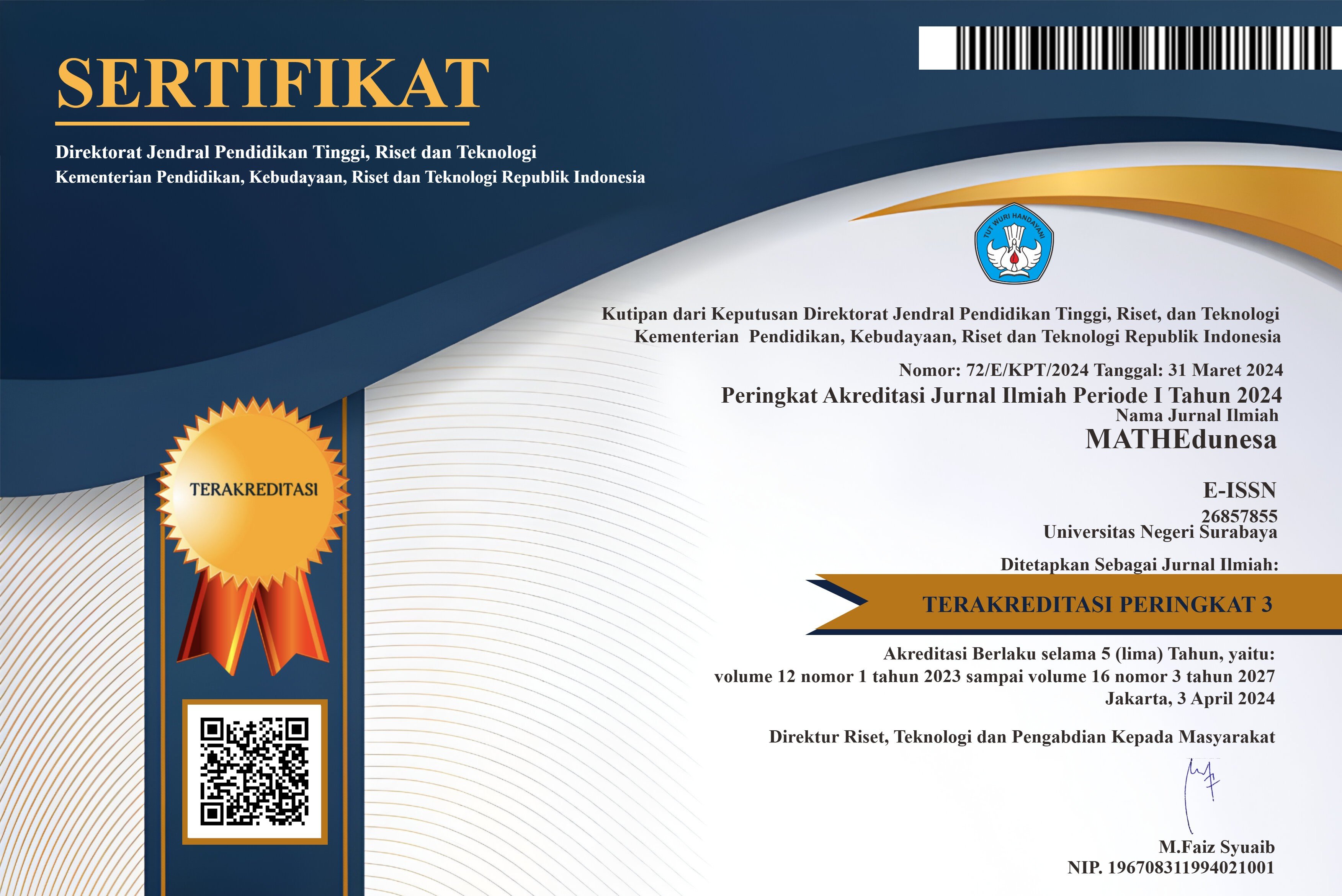Profil Berpikir Siswa SMA dalam Menyelesaikan Soal Matematika Ditinjau dari Kecerdasan Emosional
DOI:
https://doi.org/10.26740/mathedunesa.v9n1.p136-144Abstract
In mathematics learning a person often solves problems. In solving mathematical problems, a person needs a thought process with the thought process that an individual can come up with an idea to solve mathematical problems correctly. Stages of thinking take place individually and have a relationship with the social interactions carried out. The interaction will produce behavior. One factor that influences behavior is emotion. Therefore, the behavior of every individual must be related to good emotional control so that it can produce good behavior as well.Good emotional control requires preparedness and thought so that the behavior carried out does not have a negative impact on others. The readiness and thinking of a person can be seen from the age of an individual. The teenage phase occurs in someone at the age of 12 years to 18 years. At that age, an individual is in the middle or high school level. If a teenager feels school activities are not able to accommodate his thoughts, then he will overflow for less positive things. So teenagers should have the good emotional intelligence to control their emotions.
This research is a descriptive study with a qualitative approach that aims to describe how the profile of thinking in solving mathematical problems based on the level of emotional intelligence. Subjects in this study were three students consisting of one student with high emotional intelligence, one student with moderate emotional intelligence, and one student with low emotional intelligence. In achieving these objectives the researchers conducted emotional intelligence tests, tests of mathematical problem solving, and interviews of the three subjects.
The results showed that students with high emotional intelligence were able to solve mathematical problems with SPLTV material correctly, all information on the questions was used, writing steps to solve problems coherently and correctly, choosing the correct method to solve the problems. Emotionally intelligent students are less able to solve mathematical problems with SPLTV material correctly, because there is information on questions that are not used, and that results in choosing a method to solve the problem so that in solving it is less correct. Low emotional intelligence students are less able to solve mathematical problems with SPLTV material correctly because they are not able to remember previous knowledge, there is information on questions that are not used, the methods used are not correct, so in solving them less correct.
Keywords: Thinking, Mathematics, and Emotional Intelligence.
Downloads
Download data is not yet available.
Downloads
Published
2020-06-16
Issue
Section
Psychology
 Abstract views: 167
,
Abstract views: 167
, PDF Downloads: 273
PDF Downloads: 273




